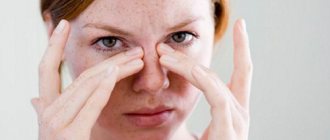When you get pregnant, most of your life changes. Sometimes the expectant mother does not know whether to abandon her usual self-care procedures or how to properly celebrate the holiday. Is it possible to fly on vacation or is it better to spend it at home? Let's talk about what a pregnant woman can and cannot do.
Personal hygiene for a pregnant woman
You don't have to live in Ancient Greece to worship the goddess Hygieia, who personified purity and preservation of health. In those distant times, the principles of the science of hygiene were laid down, which explains how to eat, dress, and care for the body so as not to harm the body. Hygiene explains in what conditions you need to live, how to alternate work and rest, and maintain mental health.
Hygiene for a pregnant woman takes into account physiological changes in the body of the expectant mother. Under the influence of the hormone progesterone, local and general immunity decreases, and a woman becomes more susceptible to infections. Therefore, it is necessary to keep the skin and mucous membranes clean.
To do this, you should adhere to the following rules of personal hygiene:
- take a shower 2 times a day;
- use neutral or baby soap;
- do not wash the body and intimate area with antibacterial agents;
- wash the genitals from front to back;
- Do not use depilatory cream.
In pregnant women, the level of estrogen in the blood increases; hormones stimulate the active reproduction of beneficial vaginal microflora. This leads to an increase in the amount of whitish discharge. To prevent them from staining your laundry, you can use personal hygiene pads. But it is better to choose brands without fragrances, so as not to cause an allergic reaction.
My experience
It is believed that you should not go to the bathhouse for the first couple of weeks, and at the end of pregnancy this can even cause premature birth. And for many girls, doctors’ prohibitions are only beneficial, because everyone’s bodies are really very different. When my mother carried me under her heart, she did not visit the bathhouse, due to the threat of losing the child. This is important when there are dangers to the health of the child and mother. In such cases, it is better not to go to the bathhouse.
As for me, before pregnancy I really loved the bathhouse and was a rather private guest in this establishment. I loved visiting thermal centers, where there are many different steam rooms in one place. I especially liked the Turkish and Moroccan baths.
“And when the long-awaited pregnancy came, in the first trimester the baby and I visited the bathhouse every day while we lived in the Altai Mountains, on the banks of the Katun...”
Upon returning to the big city, I really wanted to go to the bathhouse, to the sauna, to the hammam. But because of the stuffiness and heat in the city, it was difficult for me to breathe, and I refused to visit the sauna. After reading the opinions of doctors on the Internet, at that moment, frankly speaking, I was simply afraid to go to the bathhouse.
With the arrival of winter, I started going to water aerobics for pregnant women, and it turns out there was a sauna, and after class I sat there for quite a long time. At first the trainer warned me that the first time would not last longer than 5 minutes, and then I spent more and more time there each time, sometimes for half an hour, that’s how much I needed, so I rested. After a cool pool, and sometimes a cold one, it was very pleasant to warm up in a hot sauna. It was a wonderful time, but I didn’t tell the doctors because I knew that they would tell me that it was very harmful in my situation. I didn’t want to listen to the opinion that I was doing everything wrong once again. And I continued to go to the sauna after the pool, because after that I felt 100%.
Rule 2. Eat right
The need for nutrients and vitamins during pregnancy doubles, and the process of food digestion changes, intestinal motility slows down, and the production of hydrochloric acid in the stomach decreases. Therefore, nutrition during pregnancy must meet the following hygiene requirements:
- balanced in composition;
- contain a sufficient amount of vitamins;
- in small portions, but at least 4 times a day;
- without dyes, preservatives and other toxic substances.
Eliminate alcohol from the diet, reduce the amount of sweets and fatty foods, and increase the proportion of vegetables and fruits. But you won’t be able to increase your vitamin intake through diet alone. For pregnant women, there are special vitamin complexes that contain all the necessary components in the required proportions.
“There were no cases of diseases related to water quality”
Photo is for illustrative purposes only.
The Republican Center for Hygiene, Epidemiology and Public Health GO.TUT.BY assured that “a set of preventive measures carried out in swimming pools in accordance with the requirements of sanitary legislation reduces the risk of disease to a minimum.”
“Pool administrations carry out water disinfection, daily and general cleaning, disinfection of the pool bath, disinfection of walkways, floors, benches, rugs, door handles, handrails and other equipment,” the institution said. — Water is disinfected by chlorination, bromination, ozonation, ultraviolet irradiation, and the results are controlled by laboratory tests. In recent years, there is no information on cases of infectious and parasitic diseases associated with the quality of water in the pool. There have also been no recorded cases of scabies infection from the use of wardrobes or shared benches.
Specialists from the Russian Center for Hygiene and Health reminded that visitors to swimming pools do not need to provide a medical certificate of health. These requirements were excluded from the Sanitary Norms and Rules by the Ministry of Health Resolution No. 105 dated September 22, 2009. And they were motivated by: “Compliance with sanitary, hygienic and anti-epidemic requirements for the operation of swimming pools by the administration of these facilities ensures reliable prevention of the spread of infectious and parasitic diseases.”
Author: Elena Kleshchenok Photo: Olga Shukaylo, Evgeny Erchak, Alexander Chuguev TUT.BY ., January 10, 2018
Rule 3. Fresh air
During pregnancy, the need for oxygen increases, so walking in the fresh air is important. From a hygiene point of view, it is better to walk in a park where there is no noisy road or a lot of cars. In the hot season, this is done in the evening, during sunset.
In an apartment, to maintain hygiene, it is necessary to ventilate the rooms as often as possible. Dust that settles on things and floors contains a large number of allergens and harmful substances. Therefore, for the health of the expectant mother, you need to do daily wet cleaning.
Working conditions
Already at the stage of preparation for pregnancy, contact of future parents with occupational hazards in the working environment and factors of the labor process is undesirable. Harmful factors in the working environment include toxic chemicals (this is important for workers in the chemical and pharmaceutical industries), ionizing radiation, static electricity, lighting, biological factors (contact with antibiotics, hormones, other drugs, for example, among workers in pharmaceutical production). For men, harmful factors include working in a hot shop or being in rooms with air temperatures above 37 degrees. For expectant mothers, night shift work, frequent flights, and climate changes can have a negative impact on the body.
Also, unfavorable working conditions include irrational organization of the workplace (inconvenient, non-ergonomic furniture, insufficient lighting, improper installation of office equipment in violation of safety regulations, absence or insufficient mechanization of work), as well as a negative psycho-emotional climate in the workplace.
The pregnancy period is perhaps the most important period in the life of a married couple, therefore preparation for it should be very responsible, because the health of mother and baby depends on it.
Rule 5. No heels
A feature of pregnant women’s posture is a shift in the center of gravity. Therefore, to maintain personal hygiene, you need to switch to shoes with a stable heel no higher than 2-3 cm. Completely giving up heels and wearing shoes with flat soles is also harmful to health.
Hormonal changes in pregnant women make the ligaments loose. Therefore, many women develop flat feet after childbirth. To avoid this, it is recommended to choose orthopedic insoles during pregnancy.
Drinks during pregnancy
Everything that the expectant mother eats and drinks can affect the baby's health. Therefore, pregnant women often deny themselves even what they can afford.
Can pregnant women drink coffee?
The good news is that pregnant women can drink coffee, albeit in limited quantities. One or two cups of coffee will not harm the body, but more caffeine will lead to an increase in blood pressure. If a woman already has problems with high blood pressure, it is advisable to completely avoid coffee during pregnancy. But if you drank a large amount of coffee before pregnancy, then you need to give it up gradually, reducing the amount of drink every day.
Can pregnant women drink kvass?
Pregnant women can drink kvass, but in moderation and with careful study of the composition of the drink. Kvass is prepared by fermentation, so it can contain up to 1.2% alcohol. One liter of kvass can be equivalent to a glass of beer. In addition, kvass can be highly carbonated, so it can cause belching and bloating.
Can pregnant women drink non-alcoholic beer and non-alcoholic champagne?
Although non-alcoholic beer and champagne are acceptable for pregnant women, they may contain residual alcohol. You shouldn’t overuse them, but sometimes you can safely drink one or two glasses. Also, these drinks are highly carbonated, which means they can cause discomfort in the stomach, especially in the later stages.
Can pregnant women drink mint tea?
There is no information about the negative effects of mint tea on pregnant women. On the contrary, peppermint tea helps some women get rid of nausea in early pregnancy.
Can pregnant women drink champagne?
The answer for a pregnant woman is clear: no! Alcohol causes problems for both the child and the expectant mother. Even one glass can cause hypoxia and increased blood pressure. And frequent consumption of champagne can negatively affect the development of the nervous system. If you do not want to risk the health and life of your unborn child, you will have to completely give up any alcohol. Even if we are talking about celebrating the New Year, remind yourself that pregnancy lasts nine months, and you can celebrate the next New Year with a glass of champagne.
Hygiene after childbirth
In the postpartum period, intimate hygiene acquires new features. During the first month, lochia is released from the genital tract - a mucous-bloody discharge. To absorb them in the first few days, it is better to use urological pads, and replace regular underwear with disposable ones.
The mammary glands require special care. The main cream for nursing mothers is any drug with dexpanthenol. It helps prevent the appearance of cracked nipples and speeds up their healing. A special bra for nursing mothers will support the breasts in the correct position, and round pads for absorbing milk will keep the linen clean.
The life of a young mother is adjusted according to the needs of the baby. But modern personal hygiene products make caring for yourself and your newborn easier.
Diagnosis of constipation
Diagnosis is based on complaints that a woman voices to the doctor. As a result, a diagnosis of chronic constipation may be made. However, identifying the causes is important here, since stool retention is only a symptom. It is important to establish the development mechanism to eliminate the causes.
What to do about constipation during pregnancy? First of all, tell the gynecologist who is treating you about this. If necessary, he will refer you to specialized specialists if there is reason to suspect diseases of the gastrointestinal tract or other pathologies. It is important to tell about how long ago the retention of stool began, and whether the problem was observed before conception.
Complex diagnostics usually includes laboratory and instrumental methods, taking into account the duration of pregnancy and the individual characteristics of its course.
The doctor excludes serious pathologies based on the results of routine examinations: assessment of the level of glucose in the blood and thyroid hormones, conclusions of a therapist, etc. In addition, at certain times, the patient undergoes routine examinations by specialized specialists. If she does not have chronic diseases that can lead to constipation, the doctor will explain the reasons for the difficulty in defecation and talk about how to deal with it.











